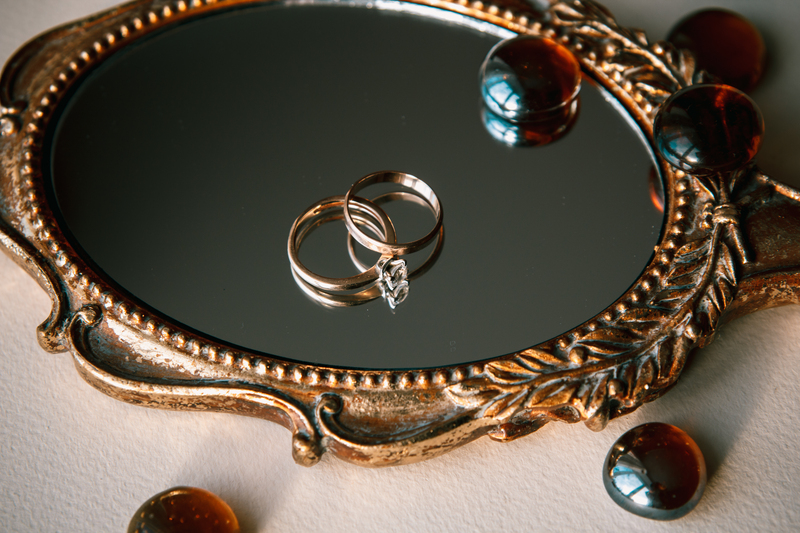Transform Your Space: How Decluttering Leads to a Minimalist Lifestyle
Are you feeling overwhelmed by the excess in your home? Decluttering is more than just organizing--it's about transforming your environment and embracing a minimalist lifestyle that can improve your well-being, focus, and happiness. Whether you are a seasoned minimalist or just beginning your journey, this comprehensive guide will help you transform your life and space for the better.
What is Minimalism?
Minimalism is a lifestyle that emphasizes living with less, focusing on what truly adds value to your life. By removing excess, minimalist living creates room for meaningful experiences and reduces physical and mental clutter.
Minimalism is not about deprivation; rather, it's about intentional living--curating your environment so that it reflects your priorities and supports your best self.
Core Principles of Minimalism
- Intentionality: Choosing possessions and habits that align with your values.
- Quality over quantity: Prioritizing well-made, useful items rather than accumulating more.
- Clarity of Space and Mind: Creating physical and mental openness for creativity and peace.
- Sustainability: Reducing waste through mindful consumption.

The Connection Between Decluttering and Minimalism
Decluttering your home is often the first and most impactful step towards a minimalist lifestyle. When you clear out unused, duplicate, or distracting possessions, you make space for things that matter, both physically and mentally.
By letting go of clutter, you set the foundation for sustainable minimalism. The less you own, the easier it is to maintain order, find what you need, and truly enjoy your sanctuary.
How Clutter Impacts Your Life
- Stress: A cluttered environment can increase anxiety and overwhelm.
- Lack of Focus: Clutter distracts your mind, making productivity difficult.
- Reduced Creativity: Excess and disorder stifle inspiration and creative thinking.
- Time Wasted: The more you have, the longer it takes to clean and find things.
Removing clutter is not just an aesthetic decision--it has tangible effects on your mood, health, and overall life satisfaction.
The Benefits of Decluttering for a Minimalist Life
Transitioning to a minimalist lifestyle through decluttering brings a wealth of benefits:
- Enhanced well-being: Clear spaces promote peace and balance.
- Improved focus and productivity: Less distraction, more time and energy for priorities.
- Financial gain: Selling or donating items can put money in your pocket or reduce waste.
- Environmental impact: Mindful consumption leads to less waste and a lighter ecological footprint.
- Stronger relationships: Inviting, clutter-free homes make for better gatherings and deeper connection.
Simplifying Your Life, One Space at a Time
It doesn't happen overnight, but making continual progress in decluttering will steadily shift your space and habits towards minimalism.
Step-by-Step Guide: Declutter for a Minimalist Space
Ready to transform your home and embrace minimalist living? Follow these actionable steps:
1. Set Clear Goals
- Define what you want from your space--more light, less visual noise, increased order?
- *Identify your "why"*: Are you seeking more peace? A home that's easier to clean?
- Write these motivations down to keep focused during your journey.
2. Start with One Area
- Begin with a small, manageable space: a drawer, shelf, or closet.
- Completing a small project gives you motivation to continue.
3. Sort and Categorize
- Remove all items from the area.
- Create piles: keep, donate, discard, and relocate.
- Be honest--if you haven't used it in six months (and it's not seasonal), consider letting go.
4. Evaluate Each Item
- Does it serve a purpose or bring you joy?
- Is it a duplicate or outdated?
- If unsure, place it in a "maybe" box. Reevaluate after 30 days.
5. Organize What's Left
- Group similar items together; assign homes so everything has a place.
- Label containers to maintain long-term order.
- Use storage solutions that support "less is more"--avoid just hiding clutter out of sight.
6. Dispose or Donate Responsibly
- Donate like-new items to charities.
- Recycle or repurpose what you can.
- Dispose of damaged or unusable things thoughtfully.
7. Maintain Regularly
- Set aside time weekly or monthly for a quick tidy-up.
- Adopt the "one in, one out" policy to keep clutter from returning.
Room-by-Room Decluttering Strategies
Living Room
- Remove excess decor, old magazines, unused electronics, and extra furniture.
- Keep surfaces clear to create a calming atmosphere.
Bedroom
- Pare down your wardrobe, nightstand items, and under-bed storage.
- Opt for simple bedding and minimal decor for relaxation.
Kitchen
- Eliminate duplicate utensils, expired goods, and unused gadgets.
- Keep only what you use daily on the counters--store the rest.
Bathroom
- Dispose of expired products and empty containers.
- Streamline towels, toiletries, and cleaning supplies.
Office or Workspace
- Digitize paperwork and files where possible.
- Keep only essential office supplies on your desk to maximize focus.
Mindful Consumption and Preventing Future Clutter
Minimalism is not just about decluttering once--it's about adopting mindful habits that keep you from accumulating more.
- Question every purchase: Do you truly need it? Will it add value?
- Embrace quality: Buy fewer items, but choose ones that last and serve multiple purposes.
- Set boundaries: Avoid "shopping therapy"--find fulfillment in experiences or hobbies, not possessions.
The Power of the "One In, One Out" Rule
Whenever you bring a new item into your home, commit to removing one. This golden rule maintains equilibrium and prevents clutter from building up again.
Minimalism and Mental Well-being
Decluttering is directly connected to emotional health. A tidy, minimalist space can:
- Reduce stress and anxiety
- End decision fatigue
- Promote better sleep
- Inspire positive routines
Studies show that people in less cluttered environments are generally happier, more productive, and less likely to feel overwhelmed. A minimalist lifestyle is as much about achieving inner calm as it is about having a tidy bedroom.
Common Challenges and How to Overcome Them
Emotional Attachment
- Ask yourself: Does the item represent a memory or an obligation?
- Practice gratitude and let go, knowing that memories live within you--not your belongings.
Overwhelm
- Break tasks into bite-sized projects--one drawer at a time.
- Enlist a friend or family member for support.
Lack of Time
- Schedule short, consistent decluttering sessions--15 minutes a day adds up.
- Set a timer and make it a game for extra motivation.
Minimalism for Families and Shared Spaces
Minimalism doesn't have to be a solo journey. Encourage household members to participate by:
- Setting shared goals for common areas
- Assigning everyone a say in what stays or goes
- Teaching kids the value of less, starting with toys or clothes
Shared minimalism builds harmony, teaches responsibility, and ensures everyone feels at home in your revitalized space.
Decluttered Spaces: Real-Life Transformations
Case Study #1: From Chaos to Calm
Jane, a busy mom, started her journey by decluttering the entryway. Over time, each organized zone brought a sense of relief. Her family routines improved, and she could finally relax in her living space.
Case Study #2: Small Apartment, Big Results
Mike, a city dweller, embraced minimalism and found that clearing out closet clutter made his studio apartment feel twice as large. His focus and physical health both improved.

Maintaining a Minimalist Home Long Term
After decluttering, the key is to maintain your minimalist environment:
- Review and reassess regularly
- Stay mindful of new items entering your home
- Continue to let go of things that no longer serve you
Minimalism is a journey, not a destination--enjoy the process of continual refinement.
Conclusion: Begin Your Minimalist Transformation Today
Transforming your space through decluttering is life-changing. Each step towards a minimalist lifestyle clears mental fog, reduces stress, and invites a new sense of calm. Whether your home is large or small, or you live with family or alone, you can start today. Remember, minimalism is about more than just "less"--it's about creating space for what matters most.
Take the first step. Embrace the power of decluttering and let your space reflect your truest, most intentional self. Your minimalist transformation begins now!